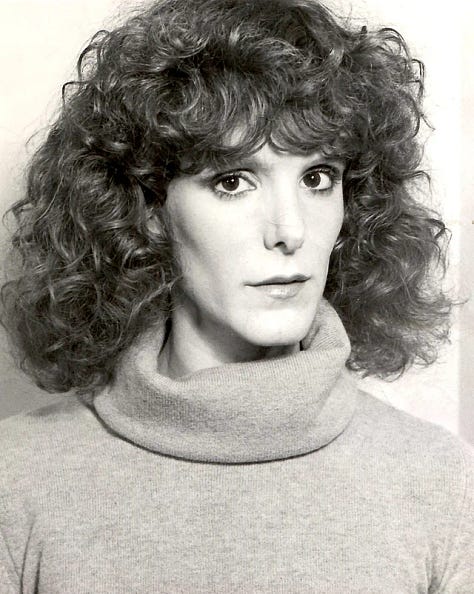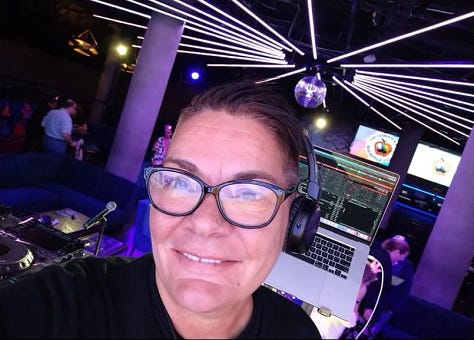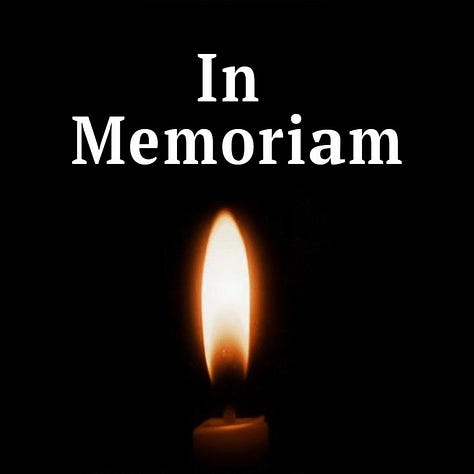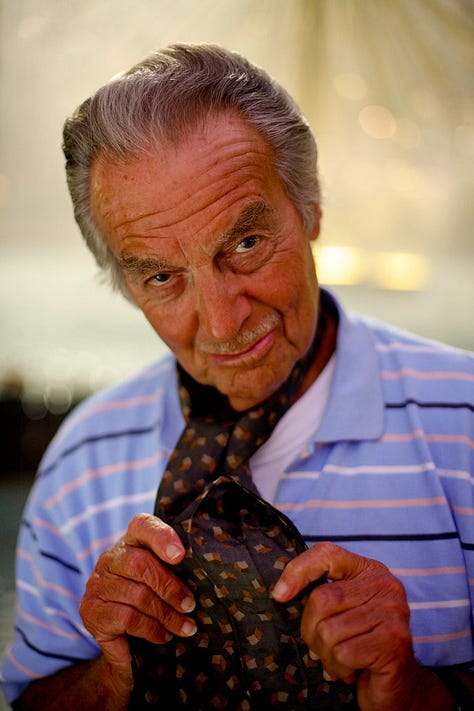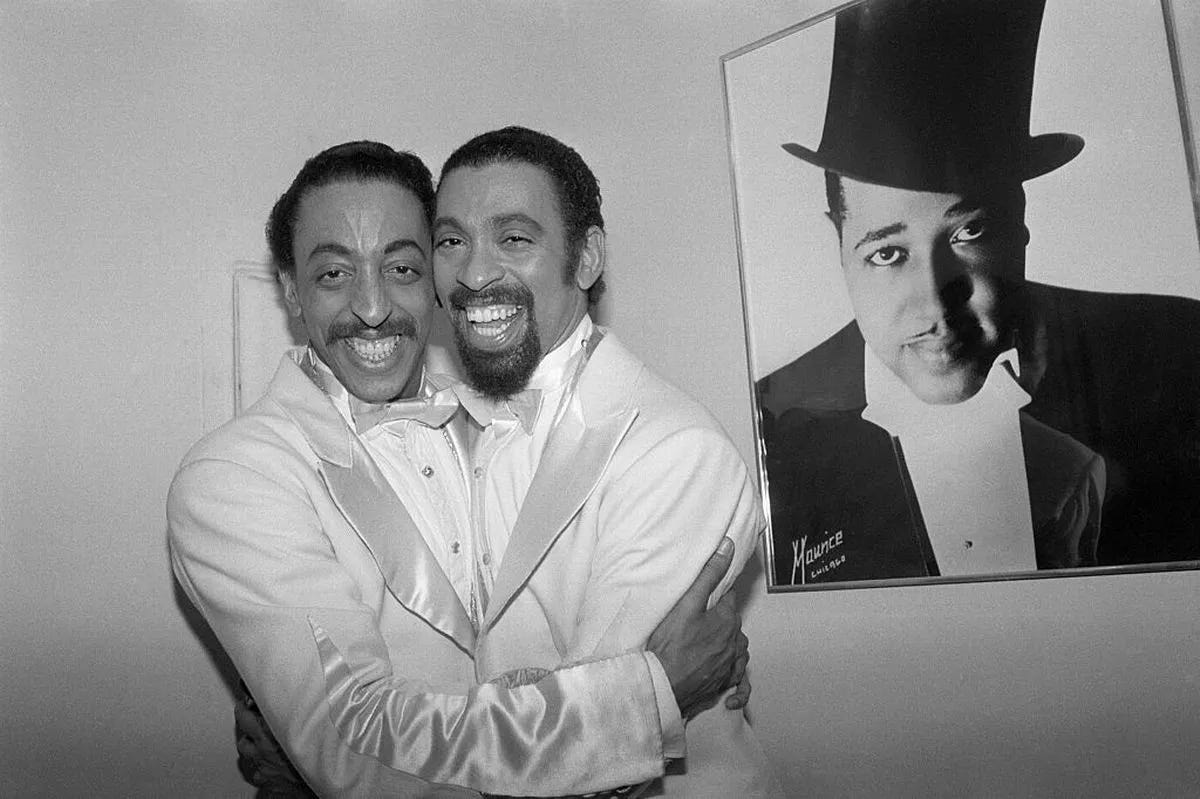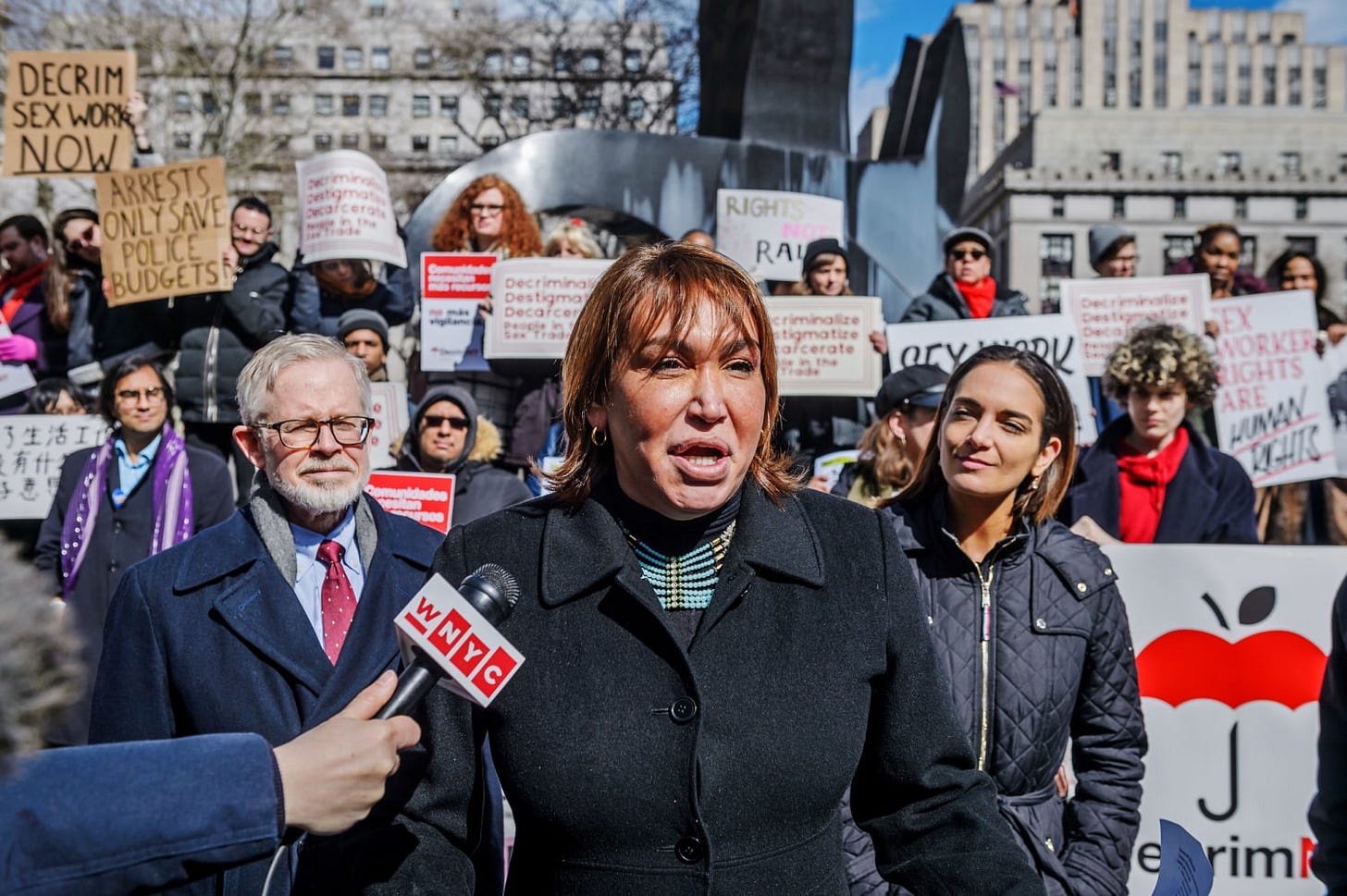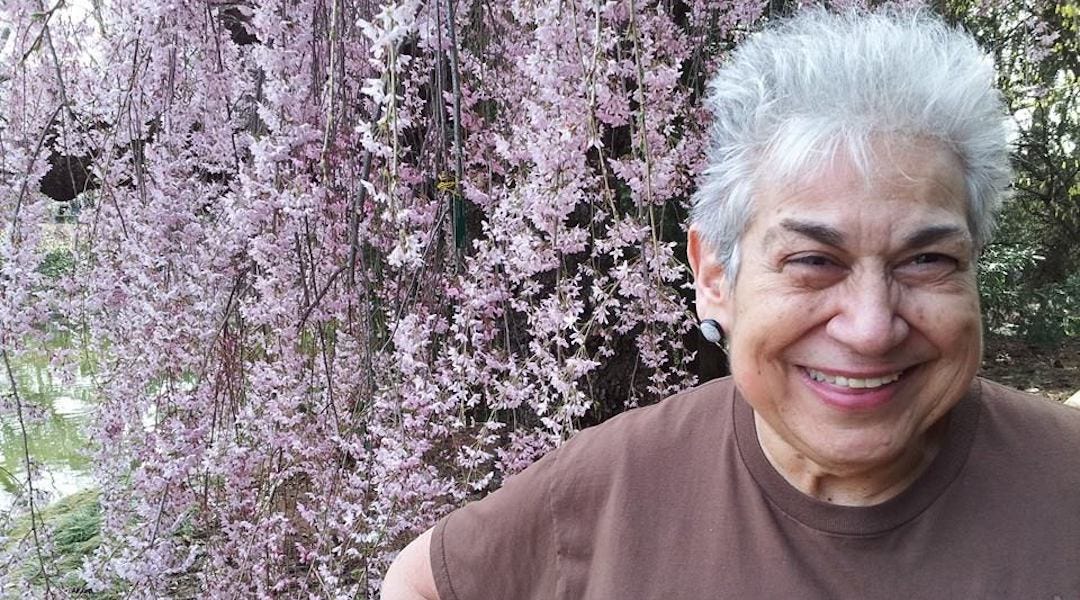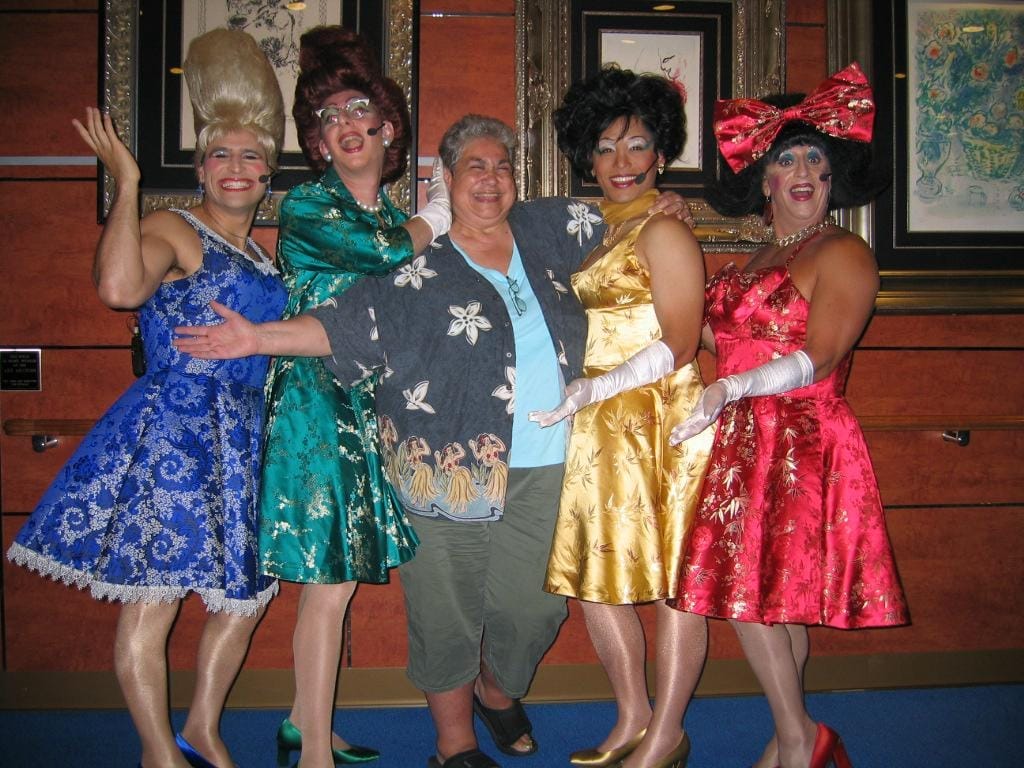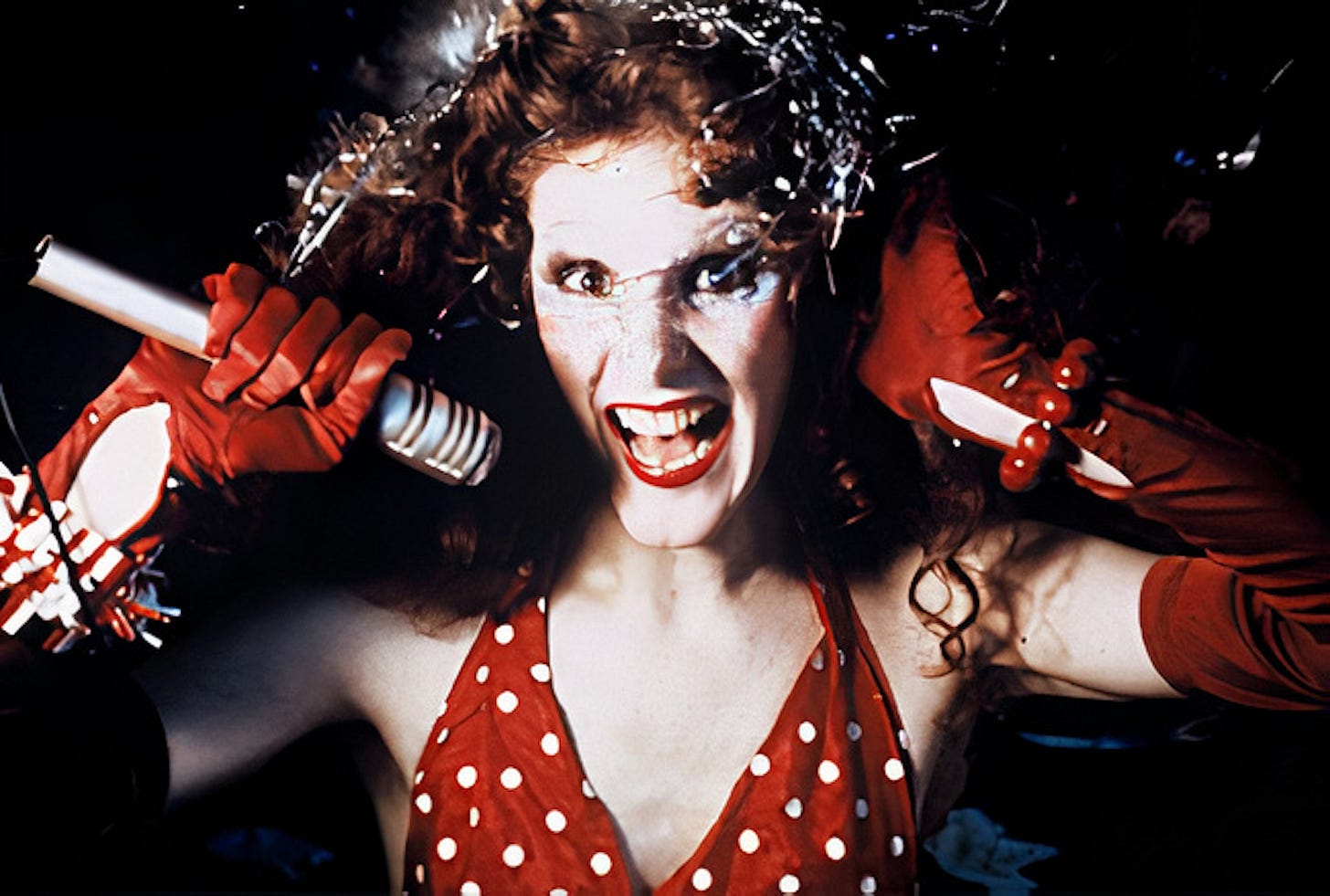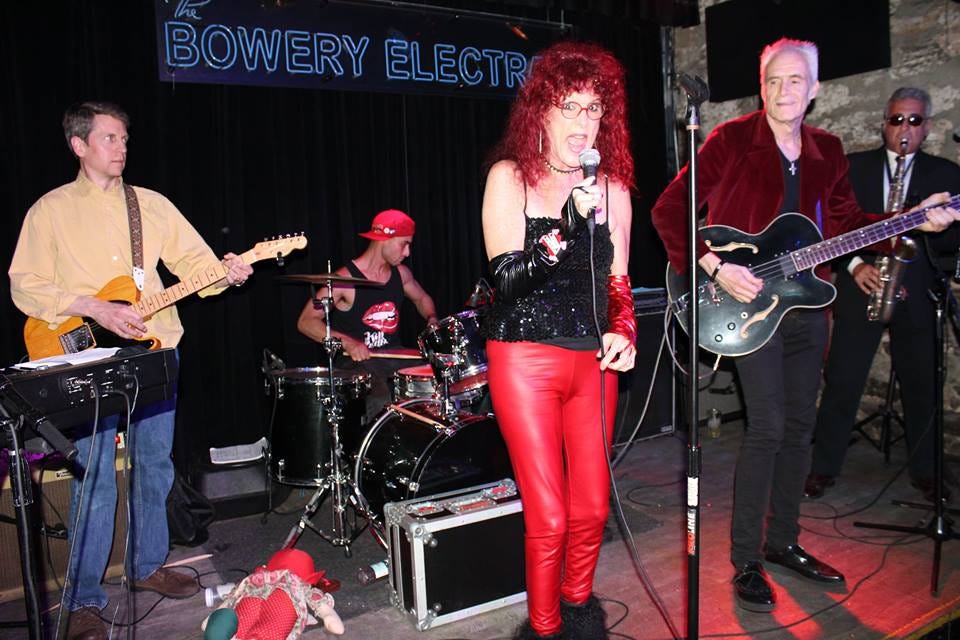Those We've Lost So Far (Part 1 of 2)
2024 is nearly halfway over, and already New York City has lost a number of notable LGBTQ+ icons, including Dee Finley, Cecilia Gentili, Steve Ostrow and more.
On an annual basis, we lose a significant amount of queer history makers, but we typically reflect on those losses only at the time of said individual’s death and then once again in a massive roundup at the end of the year. As we are just about to reach 2024’s halfway point, I noticed our community had already lost a number of queer folks, each of whom made an impact on New York City in ways both big and small. To allot each of those individuals a bit more attention, I decided to round up a number of individuals who have passed on to reflect on their lives and legacies. In this newsletter, I’ll be covering: Maurice Hines, Steve Ostrow, Cecilia Gentili, Dee Finley, Shelly Weiss, DJ Stacy (Ledwith), David Mixner and Ruby Lynn Reyner.
Meanwhile, next week I’ll be highlighting the lives of Andrew Crispo, Joan Gibbs, Christopher Durang, Mary Ann Zielenko, REX, Patti Astor, Robbi Mecus and KoKo Aviance (Thay Floyd). If there’s anyone else you think has been left out or should be included, please be sure to let me know!
1. Maurice Hines (1943-2023)
Technically, Maurice Hines passed away in 2023, though it was on the 29th of December, so his death was mostly reported on in early 2024. Maurice Robert Hines Jr. was born on December 13, 1943 in New York City and began his career in showbiz at the age of 5, studying tap dance at the Henry LeTang Dance Studio in Manhattan. LeTang recognized Hines’ talent immediately, and began choreographing numbers specifically for Maurice and his younger brother, Gregory. At the age of 11, Maurice made his Broadway debut in 1954’s The Girl in Pink Tights. Shortly thereafter, he and his brother began touring as the opening act for headliners such as Lionel Hampton and Gypsy Rose Lee. The brothers then began performing on a regular basis alongside their father as "Hines, Hines & Dad," and the group appeared on numerous TV shows, including The Pearl Bailey Show, The Hollywood Palace, and The Tonight Show. The family troupe also toured and performed around New York City, Las Vegas, and throughout Europe.
Eventually, Maurice decided to pursue a solo career and he was cast as Nathan Detroit in the national tour of Guys and Dolls. He then returned to Broadway in Eubie! (1978) and would continue to perform on Broadway for several decades. Additional Broadway credits of his include Bring Back Birdie & Sophisticated Ladies (both in 1981) as a performer, Uptown... It's Hot! (1986) as choreographer and as a performer (for which he earned a Tony nomination for Best Actor in a Musical), and Hot Feet (2006), which he conceived, choreographed, and directed.
Hines also appeared in a leading role in Francis Ford Coppola's 1984 feature film, The Cotton Club. In it, Maurice and his brother Gregory portray the "Williams Brothers," a tap-dancing duo reminiscent of the real-life Nicholas Brothers. Hines appeared in several roles on television as well, including in Eubie!, Love, Sidney, & Cosby. In 2019, John Carluccio directed the feature film Maurice Hines: Bring Them Back, a biographical documentary about Hines. The film was awarded the Metropolis Grand Jury Prize at the DOC NYC Film Festival in Fall 2019. The Hollywood Reporter wrote that the film "digs much deeper than your usual showbiz doc."
In several interviews over the years, Hines often complained about New York theater critics, the economics of Broadway and the prejudice against Black artists. In his final years, however, he spoke primarily about his glorious past and about missing his brother, Gregory, who passed away in 2003. In the late '80s, Hines moved out of New York City to Los Angeles, where, with Silas Davis, his partner at the time, he adopted and raised a daughter, Cheryl Davis. Hines died in Englewood, New Jersey, on December 29th, 2023, at the age of 80.
2. Steve Ostrow (1932-2024)
On February 4th, 2024 Steve Ostrow, founder of the legendary Continental Baths at 230 West 74th Street in Manhattan, passed away at his retirement home in Sydney, Australia at the age of 91. Ostrow first opened The Continental Baths in 1968 in the basement of The Ansonia Hotel, after being dissatisfied with the other run-down and dingy gay bathhouses the City had to offer. The upscale, over-the-top Continental Baths quickly gained popularity, with lines forming around the corner on opening night. Decked out in opulent Gilded Age decor and Roman-style ambience, the Baths became more than just a haven for gay men to have intimate encounters, and would serve as a blueprint for many iconic bathhouses to come, including The New St. Marks Baths, which opened in 1979.
At Continental, Ostrow installed a stage specifically designed for a DJ booth, an innovation which paved the way for legendary DJs like Frankie Knuckles and Larry Levan to spin there, establishing the Baths as a hub for groundbreaking music experiences. The stage at The Continental Baths also held live performances and launched the careers of numerous artists who would go on to achieve great fame, including Barry Manilow, Labelle, The Manhattan Transfer, Melba Moore, and perhaps most famously, Bette Midler, who earned the nickname 'Bathhouse Bette.' As live performances—which were open to the public—became more popular at The Continental, the toweled, gay male cruising crowd began to dwindle due to discomfort with the now fully clothed heterosexual presence. Ostrow agonized over this dichotomy, and ultimately cancelled the live performances altogether in 1974. The gays, however, did not return in full force, and Ostrow closed the Continental Baths for good in 1976.
Steve Ostrow was born in Brooklyn on September 16th, 1932. Prior to openeing the Baths, he studied voice at the Henry Street Settlement in Manhattan and went on to sing and perform with various operas including the New York City Opera, the San Francisco Opera, the Stuttgart Opera, and the Australian Opera. He also, for a time, worked for a loan company before eventually started his own. But it was the Continental Baths that would remain his greatest legacy.
After closing the Baths, Ostrow moved to Australia in the 1980s, where he became director of the Sydney Academy of Vocal Arts and taught young Australian performers. He continued to work with students until he was nearly 90 years old. In 1990, he founded the M.A.G. (Mature Age Gay) group there, which provided support and care for older men who had faced stigma and were grieving the loss of their partners after the AIDS epidemic. Ostrow also penned Saturday Night at the Baths, a comprehensive retelling of the history of The Continental, as well as a memoir called Live at The Continental. After a long life, Ostrow passed away in a Sydney retirement home on February 4th, 2024, at the age of 91.
3. Cecilia Gentili (1972-2024)
On February 6th, 2024 beloved trans author, activist and performer Cecilia Gentili died unexpectedly at the age of 52. Gentili was both the Director of Policy at GMHC (Gay Men’s Health Crisis) as well as the founder of Trans Equity Consulting, an organizational development consulting firm which sought to center trans women of color, immigrants, sex workers, and incarcerated people. More recently, she became known both for her powerful debut book, Faltas: Letters to Everyone in My Hometown Who Isn’t My Rapist (2022) as well as for her autobiographical off-Broadway show, Red Ink (2023).
Born on January 31st, 1972 in Argentina, Genitili was raised as a boy in the Argentinian city of Gálvez, Santa Fe. Throughout her difficult childhood, she struggled with her sexuality and gender identity, and was regularly attacked by people who targeted transgender individuals, whom they considered to be wearing clothes belonging to a different gender. Gentili eventually moved to Rosario, a larger city in Argentina, to attend college, which is where she met another trans person for the first time and she soon began publicly identifying as a woman. At the age of 26, Gentili decided to move to the United States in pursuit of a safer life, but immediately faced challenges as an undocumented transgender woman who hailed from South America.
Landing in New York in 2000, Gentili navigated the tough terrain of sex work for a decade, all while fighting for access to recovery services before ultimately winning asylum. Gentili eventually landed her first legitimate job with the Apicha Community Health Center in SoHo, where she worked as an H.I.V. peer navigator and then as the trans health program coordinator, managing a clinic which grew from four patients to more than 500. Gentili also went on to found Decrim NY, which advocated for the decriminalization of sex work. She notably fought for the Gender Expression Non-Discrimination Act and worked hard towards expanding access to health services for transgender individuals across New York State. In partnership with Callen-Lorde, Gentili launched initiatives such as COIN, or "Cecilia's Occupational Inclusion Network", which provided a free health clinic for sex workers.
Over the past several years, Gentili was very much a visible and beloved presence in New York City at many of the most influential rallies and protests. In 2020, she delivered remarks at a rally at Stonewall Inn, hours after the Supreme Court issued a landmark ruling barring employment discrimination for LGBTQ+ workers. In 2022, Gentili blasted Mayor Adams’ administration over three anti-LGBTQ appointees outside of City Hall. As a performer, Gentili acted in several one-woman shows including The Knife Cuts Both Ways and Red Ink. She also appeared in an iconic role as Ms. Orlando on Pose, the groundbreaking FX drama. In 2022, Gentili authored a memoir about young queer life in 1970s Argentina. After hearing of Gentili’s untimely passing, an outpouring of tributes immediately started to flow in honor of this trailblazer, and a historic funeral was held for Gentili at St. Patrick’s Cathedral in the City. Model and activist Gia Love noted at the time: “We lost an icon today."
4. Dee Finley (1965?-2024)
On February 7th, 2024 news broke that Dee Finley, who described themselves as a "minor downtown celebrity," a "NYC cowboy," and a “Pyramid Club alumni,” as well as a "joker, actor, teller of stories, artist, tinkerer, builder of things, lover of life and proud cat dad," had passed away. According to Tom Eubanks, (@tomusphere), "Dee Finley was a downtown omnipresence long before pronouns were an issue. He was an old-school drag king during the heyday of drag queens and go-go boys. He played Diesel Fortensky in RuPaul’s Starbooty and an inmate (alongside Gina Varla Vetro) in Amy Sedaris' Strangers with Candy movie."
Upon learning of Dee’s passing, George Wittman (@georgecdwittman) remarked: "Words are too weak for Dee, like “Legend,” or “Icon.” Dee was much bigger than that.
That mold was destroyed when Dee punched out of it. Dee had moved to LA and had transitioned to Diedrich in recent years and he shared some of that experience with me...Actor, writer, downtown legend and a parent to some sweet kitties...We used to run around and were baby gays together, evenings at Dee’s apartment on Ave A eating pizza and watching Russ Meyer movies." Emily Manson (@enahmanson) also added: "I got into some fun crimes back in the day with Dee. RIP to a legend 😢."
In many ways, Dee Finley epitomized what it meant to be a queer New Yorker—impossible to define, scrappy, resilient, and all while touching the lives of many they encountered. Mel Ottenberg (@melzy917) recalled one particularly iconic story about Finley: “Dee was so cool…I haven’t seen them in like 18 years but I think Dee is the one that made friends with Liz Taylor at rehab, and that Liz bought Dee new teeth.” So even Elizabeth Taylor was impressed with Dee.
In their own beautiful eulogy, Macauley DeVun (@macauleydevun) reflected on their own experiences with Dee while in NYC: “I was a go-go dancer for Dee at his XXY Party that was at the legendary Lux in Williamsburg, Brooklyn. Before that, Dee and I knew each other from the downtown NYC drag scene. Dee was like a gay daddy to me and many others. I’m so sorry to hear of his passing. It is such a huge loss for this community. Dee was all things and did all things. Dee was a beautiful mixture of high art and working class that we don’t see very much anymore. Part of an NYC that has been gentrified/self-surveilled out of existence. He didn’t have an easy life but he sure had an interesting life. He will be missed!”
5. Shelly Weiss (1946-2024)
On February 22nd, 2024 news broke that Shelly Weiss, a political activist who promoted LGBTQ+ awareness in the arts and who mentored a younger generation of Jewish progressive activists had passed away at the age of 77 after battling late-stage kidney disease. Weiss was born in 1946 and grew up in Brownsville, Brooklyn which, at the time, was a primarily working class Jewish neighborhood. After graduating from Samuel J. Tilden High School in Brooklyn, she studied political science at Brooklyn College and earned a master’s degree in social work at SUNY Stony Brook. She then moved to Park Slope, where she became one of the earliest “out” lesbians in the neighborhood that would come to be nicknamed “Dyke Slope.”
In 1994, Weiss left her career in social work and health administration to found OUTMedia, which aimed to book LGBTQ+ performers at college campuses. Promoting acts like the Kinsey Sicks—a drag a cappella group founded by gay Jewish attorney Ben Shatz and lesbian comedian Julie Goldman, Weiss hoped to break down barriers on U.S. campuses and promote marginalized queer culture. “I realized that the arts were a prime vehicle to change consciousness,” she stated in a 2015 interview with Keshet, “forget people’s heads, reach their guts, their hearts. In this new way, I could really reach a new generation and reframe thinking.”
In an interview with Aubree Sepler for My Jewish Learning, Weiss reflected on her time coming out of the closet: “I came out in 1971, at a time when I knew no gay people. Not one single gay person. I actually came out with another woman who, like me, identified as straight. And it was kind of really interesting in that we had become friends and would often go cruising for men together, and we realized that we were who we were looking for. It was totally unexpected. It was a time—mind you, I don’t think I’ve shaved my legs since 1971—but we even bonded because we had shaving scars at the same location on our legs.”
Throughout her lifetime, Weiss was also involved with many other groups and organizations. She was an active member of Kolot Chayeinu, a progressive Jewish synagogue in Brooklyn. She was also a mentor to members of Jews for Racial & Economic Justice, a Brooklyn-based progressive group that connects Jewish values to social justice causes. She was a leader in its New York Caring Majority, which seeks higher wages for home care workers and served on JFREJ’s Poor & Working Class caucus & Disability caucus. JFREJ noted in a statement on hearing of Weiss' passing: “She was a queer icon who reminded us always that the personal is political, and she was a really, really great hugger.”
6. DJ Stacy (1967-2024)
On March 2nd, 2024 Anastasia Ledwith, best known to many as DJ Stacy, was tragically struck and killed by on oil delivery truck while riding her scooter home on Manhattan’s Upper West Side. Ledwith was only 57 years old. Ledwith's wife, Valerie Perez, was constantly worried about Stacy's scooter riding, but noted that Ledwith "was super good at it. She was super good at it. We’ve had it [the scooter] for the fifteen years we’ve been together. When we got together, she got it right away.” Indeed, DJ Stacy primarily got around New York City on her scooter and would typically use it on the weekends to move between club gigs in Washington Heights and the East Village.
During the daytime, Ledwith worked as a wholesale wine salesperson, but by night she was known and beloved by many as DJ Stacy. As a DJ, she spun for many years at a wide variety LGBTQ+ bars and parties in the City, with regular spots at Henrietta Hudson, Phoenix, the Stonewall Inn, Slate Nightclub and Bar263, among others. DJ Stacy also spun in Cherry Grove on Fire Island for over 20 years, where she was a local celebrity, as well as in numerous other venues out on Long Island, where she was originally from. "She's got a very big Long Island following," Perez told The New York Daily News, "she just made everybody dance and laugh and smile.”
Perez also added that Stacy "loved when people came up and requested things [songs]. A lot of DJs don’t like that. She love[d] it. She would never ever say ‘No’ to a request if she had it, and if she didn’t, she’d find it for you if you requested it...The boys loved her because she’s just a fun DJ, nothing serious about it. Just go have a fun time at the bar with her.” Many friends and fans remarked on what a huge and unexpected loss Stacy’s passing was to the City. Jonathan Smuts (@jonathanmichaels16) noted: “She provided so much comfortable sense and being out in NYC. This is a loss.”
More love and outpouring came from the community after hearing the news. Michael Beau (@beaunyc1 ) remembered Stacy thus in a post: "No words can describe the love you brought to the world Stacy. I will miss you and all the beauty you created. It’s going to be hard to dance without your DJ magic. My deepest sympathies to Stacy’s family and to all who loved her." Meanwhile, another friend added: “Our community is heartbroken but if you knew Stacy C. Ledwith at all you would know: she would not want you to be sad, she would want you to grab your shoe to answer the call then dance the night away.”
7. David Mixner (1946-2024)
On March 11th, 2024, David Mixner, a renowned American activist and writer who gained prominence for his contributions to anti-war efforts in the fight for gay rights, died from long COVID at his home in Manhattan at the age of 77. Mixner was born on August 16th, 1946 and grew up in the small town of Elmer, NJ. As he got older, he eventually become involved with the Civil Rights Movement and anti-war activism. Finding himself much more interested in activism, Mixner dropped out of college to become fully immersed in opposing the Vietnam War, and was an instrumental figure in organizing the Moratorium to End the War in Vietnam, a nationwide protest which drew millions and became a defining moment in the anti-war movement. His ability to both quickly mobilize and inspire made him a recognized leader and a formidable force in American politics.
Mixner then further cemented his legacy with his staunch advocacy for gay rights. In the late 1970s, California faced Proposition 6, a ballot initiative which sought to ban homosexuals from teaching in public schools. Mixner's leadership in the campaign against this proposition was pivotal, and through both grassroots organizing and strategic advocacy, he helped defeat the measure, marking a significant victory for the LGBTQ+ community and setting a precedent for future civil rights battles.
Mixner's political influence then extended into the electoral arena, most notably through his involvement in Bill Clinton's presidential campaigns. As a friend & advisor to Clinton, Mixner played a key role in rallying support from the LGBTQ+ community, though their relationship became strained when Clinton introduced the "Don't Ask, Don't Tell" policy, which Mixner vehemently opposed. Mixner's public criticism of the policy highlighted his principle-over-politics approach, even at the expense of his important personal relationships. Mixner's activism additionally extended to AIDS awareness, while his writings provided insight into the struggles and triumphs of the LGBTQ+ movement and on his own experiences as an activist.
Among his many LGBTQ+ rights endeavors, Mixner is also credited with co-founding the Gay and Lesbian Victory Fund in 1991. Now simply called the LGBTQ+ Victory Fund, it was the nation’s first organization to devote all of its efforts towards helping elect LGBTQ+ people to public office. In a statement responding to Mixner’s passing, Victory Fund President and CEO Annise Parker wrote: “David was a courageous, resilient, and unyielding force for social change at a time when our community faced widespread discrimination and an HIV/AIDS crisis ignored by the political class in Washington, D.C. David gave his time, energy and money to building a new political reality in America—having the foresight and dedication to see it through in the most difficult times. David embodied the spirit of activism and resistance in everything he did—and always with humor and a smile. He has changed not just America, but the world.”
8. Ruby Lynn Reyner (1948-2024)
As a denizen of the Warhol Factory, Ruby Lynn Reyner was perhaps best known as a singer, songwriter, musical playwright and actress in New York City’s Playhouse of the Ridiculous, as well as for being the leader of the glam rock band Ruby & the Rednecks. With her band, Reyner performed at numerous NYC club circuit institutions, including Max's Kansas City, CBGB's and the Mercer Arts Center. On March 10th, 2024, Reyner passed away in the City at 76 years old.
Reyner was born January 27, 1948 in Brooklyn where she graduated from South Side Sr. High School before attending Emerson College. She then began a career in modeling, but eventually went to a rehearsal at The Playhouse of the Ridiculous where she was introduced to John Vacarro, who immediately put her in the chorus of a show called Conquest of the Universe. Reyner was so good that she soon rose to playing the feature role as Alice, the conqueror's wife, in the production. She would subsequently star in many more Playhouse productions throughout the 1970s and 1980s.
While performing with Playhouse, Reyner was added to the cast of Drag Queens and Warhol superstars. She remained with the Playhouse for many years, starring in shows likes Heaven Grand in Amber Orbit by Jackie Curtis, Sissy by Seth Allan, and La Bohemia, written and directed by John Vacarro. She won the Drama Desk Award for outstanding performance in La Bohemia and also received positive reviews for her Broadway role of Mary, Queen of Scots in Paul Foster's Elizabeth I. During this time period, Reyner also formed the band Ruby & the Rednecks, for which she wrote satirical songs with her partner and collaborator, John Madera. The group debuted at the Mercer Arts Center, where it opened for The New York Dolls and thus became an integral part of the glam rock movement and the punk rock scene. Ruby & the Rednecks would go on to play at many renowned New York performance venues, including Max's Kansas City, Bowery Electric and CBGB's.
Ruby & the Rednecks ultimately produced two albums: From the Wrong Side of Town, produced with Peter Crowley, and Live Again! at CBGB's, a live album narrated by trans punk legend Jayne County. After seeing her perform her song "Beat Me Daddy," James Wolcott of The Village Voice once wrote: "Ruby threw out an oversized Teddy Bear, shrieked, stomped on the bear, kicked it, clawed at the audience while her claque roared back their delight...Ruby [is] going to make it big because she has what it takes." Though Ruby never did quite ‘make it big,’ she certainly left her mark on the New York City scene, in more ways than one.
